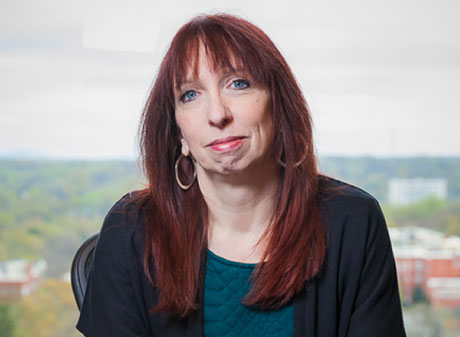From Academia to the Federal Reserve

Paula Tkac
As an economist, Paula Tkac had many mentors, both women and men. But the most inspiring one was her earliest mentor: her mother. As a woman who worked outside of the home, her mother “broke a lot of rules” in terms of the social norms of the late 1960s, Tkac described.
“So from a very early age I had a role model or a mentor who told me that I could do anything I wanted to do and it didn't really matter what other people were doing,” she said.
In a recent Women in Economics Podcast Series episode, Tkac—senior vice president and associate director of research at the Federal Reserve Bank of Atlanta—talked about leaving academia for the Fed and the importance of mentors.
Tkac was an economics professor at the University of Notre Dame when the Atlanta Fed recruited her. Her plans were to work at the Atlanta Fed for a few years—using the opportunity to get a lot of research done—and then return to academia.
“But the Fed became a really good fit, and then the financial crisis came and my expertise was more valuable inside the system than it had been,” she said.
Tkac’s research focused on asset management and decision-making by individual investors, an area of financial economics that addresses questions on investment returns and performance. In particular, she looked at the mutual fund selection process.
“When the financial crisis hit, I knew a lot of institutional detail about how the mutual fund markets work, specifically about how money market mutual funds work,” which was a relatively little known area of financial markets, she said.
In the fall of 2008, there was a lot of concern about the massive amounts of money leaving money market mutual funds.
“As an empirical economist, I spend a lot of time understanding the nitty gritty structure of how the real world operates,” she said. “That became helpful as I kind of communicated that to others, and pointed them toward resources.”
Like her mother, Tkac considers herself a rule-breaker, someone who looks outside the box and sees how things can be done differently. And she encourages people to look everywhere and anywhere for role models.
“Find that rule-breaker that can give you the emotional support or the inspiration or the vision that it's OK to chart your own path, and wherever that takes you is exactly where you're supposed to go,” Tkac said.
Additional Resources
- Women in Economics: Paula Tkac
- On the Economy: Combining Economics with Policy Research
- On the Economy: Venturing South and Making History
Citation
ldquoFrom Academia to the Federal Reserve,rdquo St. Louis Fed On the Economy, July 7, 2020.
This blog offers commentary, analysis and data from our economists and experts. Views expressed are not necessarily those of the St. Louis Fed or Federal Reserve System.
Email Us
All other blog-related questions

